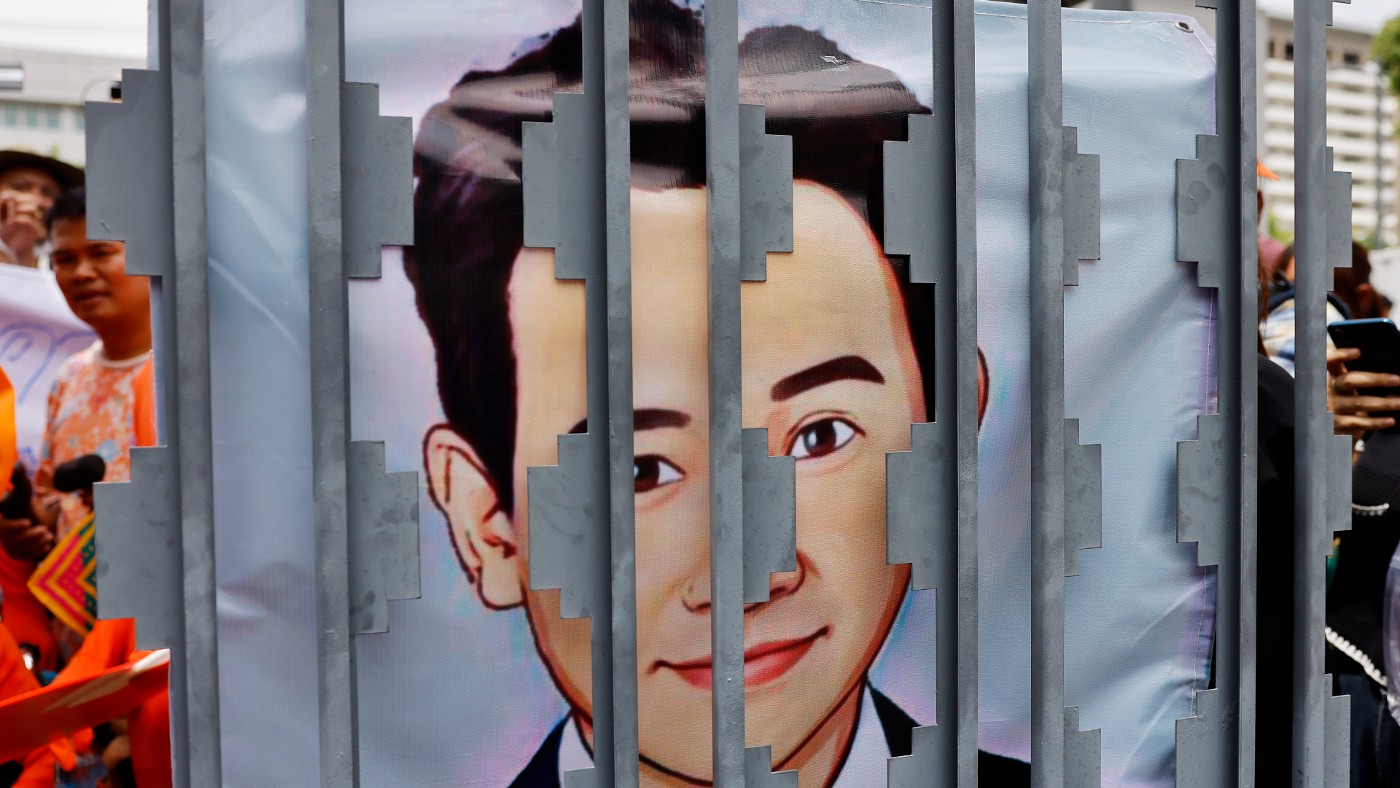Why Thailand’s election winner was stopped from becoming prime minister
Conservative senators deny Pita Limjaroenrat and ‘throw democracy down the toilet’

A free daily email with the biggest news stories of the day – and the best features from TheWeek.com
You are now subscribed
Your newsletter sign-up was successful
Pita Limjaroenrat’s bid to be nominated as Thailand’s new prime minister has ended, despite his victory in the general election.
Pita’s Move Forward Party had promised “deep structural reforms” to how the Southeast Asian country of more than 70 million people is run, said CNN.
This manifesto proved popular and the party leader “swept to victory” in the election in May as voters “rejected years of military rule”, said the BBC.
The Week
Escape your echo chamber. Get the facts behind the news, plus analysis from multiple perspectives.

Sign up for The Week's Free Newsletters
From our morning news briefing to a weekly Good News Newsletter, get the best of The Week delivered directly to your inbox.
From our morning news briefing to a weekly Good News Newsletter, get the best of The Week delivered directly to your inbox.
So what went wrong?
Who is Pita Limjaroenrat?
“The charismatic 42-year-old Pita is a Harvard-educated businessman who entered parliament in the 2019 election as a member of the Future Forward Party,” said Adam Simpson, from the University of South Australia, for The Conversation. That party was led by another “young, charismatic”, US-educated politician, Thanathorn Juangroongruangkit.
After Thanathorn’s party was dissolved for allegedly accepting an “illegitimate” loan, it was replaced by the new Move Forward Party, which became popular among young voters who wanted to end nearly 10 years of conservative military rule.
Pita was elected leader in March 2020. Alongside his popularity among the young, his reputation for “technocratic vision” appeared to have won him the support of more conservative voters, Napon Jatusripitak, a visiting fellow at the ISEAS-Yusof Ishak Institute, told The Guardian.
A free daily email with the biggest news stories of the day – and the best features from TheWeek.com
However, his path to the top job was blocked by conservatives.
What happened?
Elections in Thailand are conducted under a constitution, which was written by the military in 2017. Under the rules, Pita needed the votes of more than half of the 749 members in parliament’s two chambers to become prime minister.
But the 249 members of the Senate, who were appointed by the previous military junta, get a vote in electing the prime minister. This feature of the constitution is designed to allow the “military-appointed” Senate to “play the role of spoiler”, said Simpson in The Conversation.
Pita “always faced an uphill battle”, said the BBC, as there was “little evidence” that the 249 senators would support him. Last week, Pita secured only 324 votes in all, 51 short of the required number.
Following accusations that Pita violated election laws by allegedly holding shares in a “long-defunct” media company, he was “dramatically suspended” from parliament by the constitutional court, said the BBC, “forcing him to leave the debating chamber”.
The “bitter battle” took a new turn yesterday, said The Independent, when legislators agreed to block a second vote on whether Pita should be prime minister. Out of the 715 members of parliament present for the vote, 395 voted to block the second nomination.
Why is he opposed?
Pita won on the promise of “major reforms”, said the BBC, including a pledge to amend Thailand’s “strict royal defamation laws”. This pitted him against the unelected senate and other conservatives who say he “poses a threat to the monarchy”.
Move Forward has threatened other vested interests. It “seeks to reduce the influence of the military”, said Al Jazeera, which has staged more than a dozen coups since Thailand became a constitutional monarchy in 1932, and Pita has also spoken out against “big business monopolies”, said the news site.
What might happen next?
The stumbling blocks in his path have not come as much of a surprise for Pita. He said on Tuesday that he was expecting “pre-planned” obstacles, describing efforts by the establishment to stop him as like a “broken record”.
He addressed parliament on Wednesday to bid “farewell,” while the constitutional court’s investigation is underway. “I think Thailand has changed and will never be the same since 14 May,” he said, in reference to the date of his election victory. “The people have won halfway, there’s another half to go.”
However, said CNN, over the last two decades the nation’s constitutional court has “repeatedly ruled in favor of the establishment, dissolving several parties that had challenged the political elite”.
Meanwhile, the mood among Move Forward’s supporters is one of anger, noted Al Jazeera. Hundreds of Pita’s followers protested peacefully in Bangkok against the efforts to stop him. “What’s the point of having elections when you’re going to throw democracy down the toilet?” asked one.
Chas Newkey-Burden has been part of The Week Digital team for more than a decade and a journalist for 25 years, starting out on the irreverent football weekly 90 Minutes, before moving to lifestyle magazines Loaded and Attitude. He was a columnist for The Big Issue and landed a world exclusive with David Beckham that became the weekly magazine’s bestselling issue. He now writes regularly for The Guardian, The Telegraph, The Independent, Metro, FourFourTwo and the i new site. He is also the author of a number of non-fiction books.